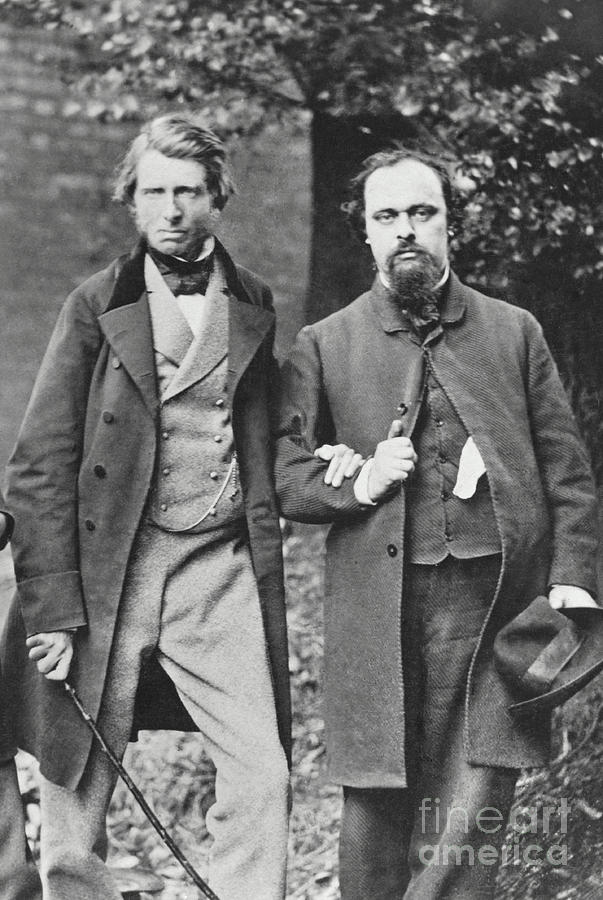
with Dante Rosetti, 1803, W & D Downey photographers (detail)
| from Sesame and Lilies. Lecture I.—Sesame: Of Kings’ Treasuries |
| 10 | |
| The good book of the hour, then,—I do not speak of the bad ones,—is simply the useful or pleasant talk of some person whom you cannot otherwise converse with, printed for you. Very useful often, telling you what you need to know; very pleasant often, as a sensible friend’s present talk would be. These bright accounts of travels; good-humored and witty discussions of question; lively or pathetic story-telling in the form of novel; firm fact-telling, by the real agents concerned in the events of passing history,; all these books of the hour, multiplying among us as education becomes more general, are a peculiar possession of the present age; we ought to be entirely thankful for them, and entirely ashamed of ourselves if we make no good use of them. But we make the worst possible use if we allow them to usurp the place of true books: for strictly speaking, they are not books at all, but merely letters or newspapers in good print. Our friend’s letter may be delightful, or necessary, to-day: whether worth keeping or not, is to be considered. The newspaper may be entirely proper at breakfast time, but assuredly it is not reading for all day. So, though bound up in a volume, the long letter which gives you so pleasant an account of the inns, and roads, and weather last year at such a place, or which tells you that amusing story, or gives you the real circumstances of such and such events, however valuable for occasional reference, may not be, in the real sense of the word, a “book” at all, nor in the real sense, to be “read.” A book is essentially not a talked thing, but a written thing; and written, not with the view of mere communication, but of permanence. The book of talk is printed only because its author cannot speak to thousands of people at once; if he could, he would—the volume is mere multiplication of his voice. You cannot talk to your friend in India, if you could, you would; you write instead: that is mere conveyance of voice. But a book is written, not to multiply the voice merely, not to carry it merely, but to perpetuate it. The author has something to say which he perceives to be true and useful, or helpfully beautiful. So far as he knows, no one has yet said it; so far as he knows, no one else can say it. He is bound to say it, clearly and melodiously if he may; clearly, at all events. In the sum of his life he finds this to be the thing, or group of things, manifest to him;—this, the piece of true knowledge, or sight, which his share of sunshine and earth has permitted him to seize. He would fain set it down forever; engrave it on rock, if he could; saying, “This is the best of me; for the rest, I ate, and drank, and slept, loved, and hated, like another; my life was as the vapor and is not; but this I saw and knew: this, if anything of mine, is worth your memory.” That is his “writing”; it is, in his small human way, and with whatever degree of true inspiration is in him, his inscription, or scripture. That is a “Book.” | 11 |